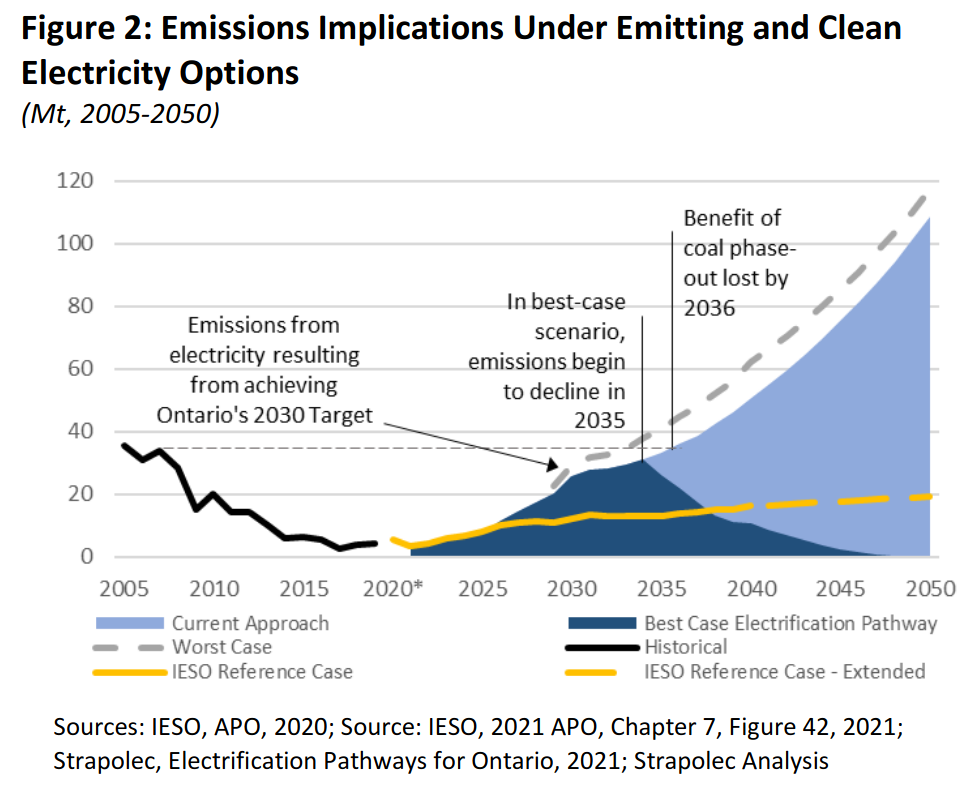June 10, 2022
Unequal effect of price increases
- USA price inflation hit 8.6%. Another unexpected high compared to what neoclassical theorists thought it would be. Much higher than Keynesians thought it would be (since they didn't think it would be high at all.)
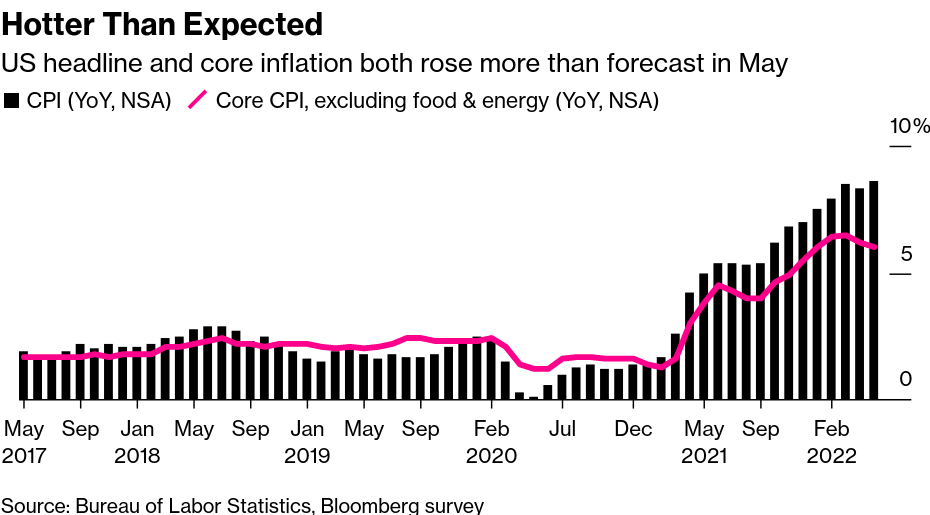
Menstrual product costs are outside the regulated price list in the USA. No points for guessing how many women on are the committees that produce those lists.
Costs are soaring for components such as plastics, fluff pulp and cotton, leading to price hikes for pads and tampons
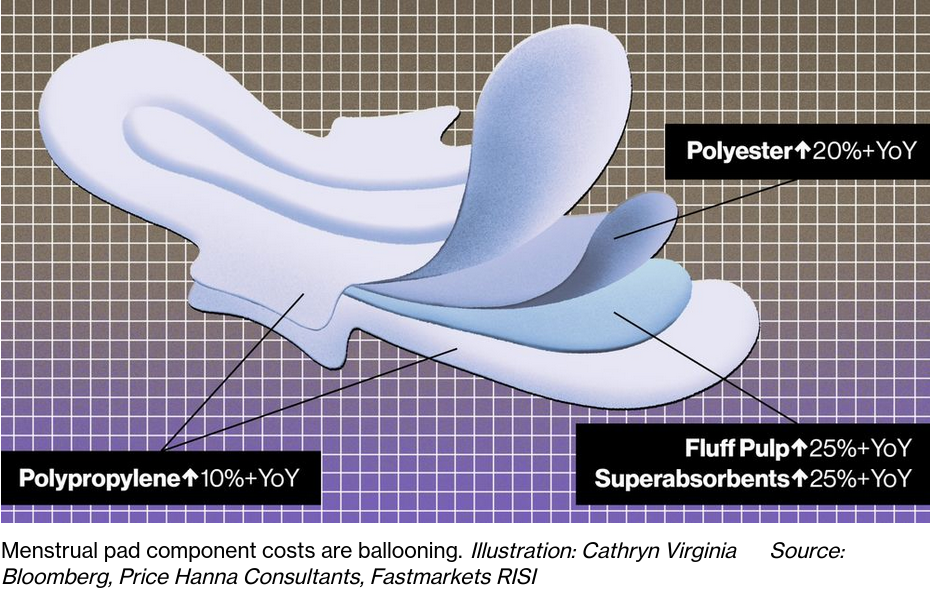
Beyond the obvious issue of why products needed by a significant plurality of the population are not sourced through bulk national production and purchasing is who decides what these products are made from: plastic and wood pulp processed using natural gas.
Components that compete with medical mask production which was under emergency orders.
The top layer of most pads is made from plastic fibers bonded into sheets. Under that outer surface, the material that soaks up liquids consists of fluff pulp and super-absorbent polymers with a chain-link-fence molecular structure that forms a gel that can hold multiple times its weight in fluids. Tampons use cotton or rayon for absorbency.
… prices for fluff pulp have increased due to a demand and supply imbalance made worse by high costs for transportation, labor and the natural gas that powers many mills
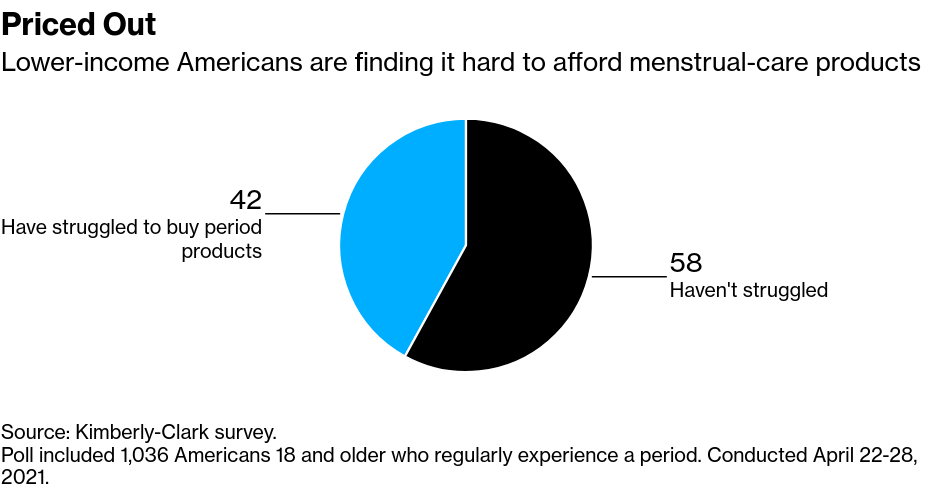
Changes to use can cause knock-on problems affecting poorer consumers:
Using period products for longer than recommended can lead to discomfort, irritation and, in severe cases, infections.
And, of course, the people who make the laws on taxes and wage supplements also hate women:
Federal assistance plans including the Supplemental Nutrition Assistance Program don’t cover personal-care products such as pads and tampons, making them difficult for the neediest people to obtain. Moreover, unlike many other basic necessities, they’re not tax-free in most US states.
UK Economy
Rishi didn't insure £900bn in QE reserves against interest rate rises.
- This has lead to an the largest unnecessary cost to public finances since Gordon Brown.
- Insurance against Quantitative Easing—a process of the Bank of England buying government bonds from pension funds and other institutional investors—takes the form of converting those bonds to (much) longer-term government bonds.
- Essentially, the government took out a variable rate mortgage instead of a fixed rate mortgage worth nearly a trillion dollars.
- Interest rate rises above 1.25% and you have some very expensive money printing.
The transfer of wealth from the public to the private sector is going to be immense. Starting at £11bn.
- Inflation in the UK is expected to pass 10% in the Fall largely because of the way that the government supported profitability of the banking sector.
Paying for war in Ukraine
- The government of Ukraine is looking for another increase to its IMF loan.
- Another $20B after the $4.8B it got in June—which was not enough to finance its issues.
- Its own central bank increased interest rates to 25% last week, but the government is selling war bonds well below this cost.
- Most of its spending right now is on keeping some production going, buying weapons, feeding troops, and keeping up with sovereign debt payment obligation.
War is expensive.
- In retaliation against these price increases is to try to continue to cut off Russian oil—a move everyone on the planet will pay for:
US Treasury Secretary Janet Yellen said a plan to ban European and UK firms from insuring tanker shipments of Russian oil could help limit Moscow’s energy revenues as allied countries seek to curb revenues flowing to Moscow.
Government ministers discuss "science" at international G7 "Science" Ministers meeting
-
On the agenda? Anything but science:
- Long covid (but, not trying to stop COVID infections)
- Carbon Capture and Storage (but, not how it isn't a thing)
- Research "values" (but, not how business values undermine science)
It is a meeting of idiots talking about things they don't understand and then congratulating themselves for allowing the market and business "solve" all our problems with public money.
The tight focus – narrower than urged in recent weeks by various science organisations – reflects an effort to get some “tangible” results from increased cooperation among the leading industrialised countries, said Bettina Stark-Watzinger, German minister for education and research, in an interview with Science|Business. The three initiatives follow a year of more general talk of G7 research collaboration, which has been criticised by many science organisations as too vague to produce results.
On the war in Ukraine, Stark-Watzinger doesn’t expect any new initiatives for military R&D at the Frankfurt meeting, because the G7 nations, “Vary a lot in the way they address that topic.” In Germany, most universities have strict bans on military or dual-use research, while in the US most big universities have substantial Pentagon R&D contracts.
Nevertheless, she praised a recent rise in military R&D coordination in other fora, such as NATO’s new DIANA initiative to coordinate R&D innovation across its members. “I think interaction [on military R&D] in a controlled way is important, because the classical war we’ve seen in the past and we’ve seen in Ukraine is probably not going to be [like] future wars. We’ll see them much more with a technological base, and this is why national security has a strong link to new technologies.”
Random, but interesting
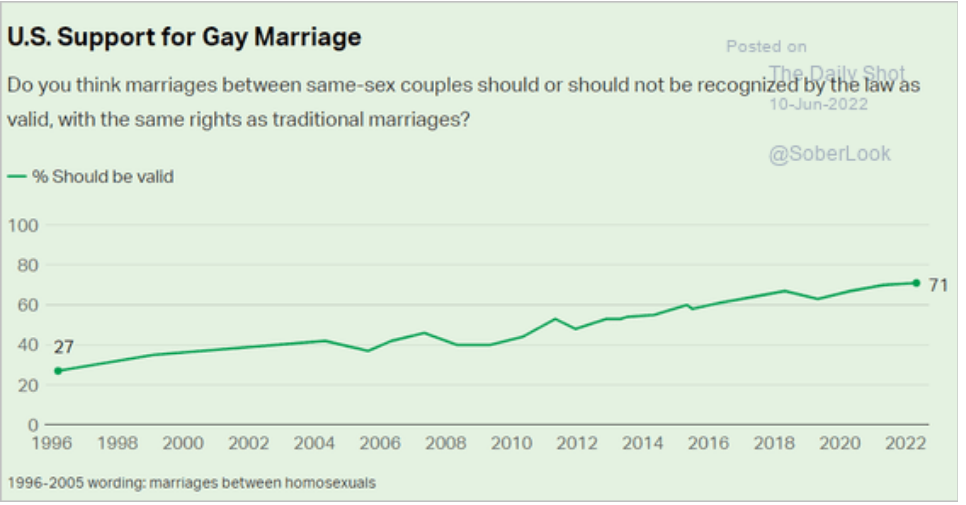
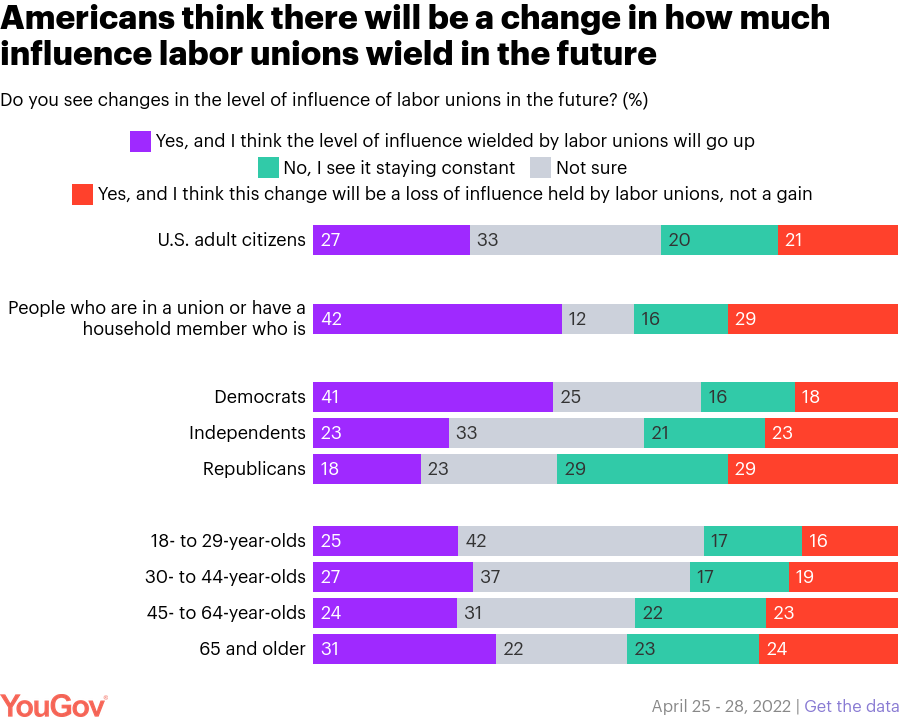
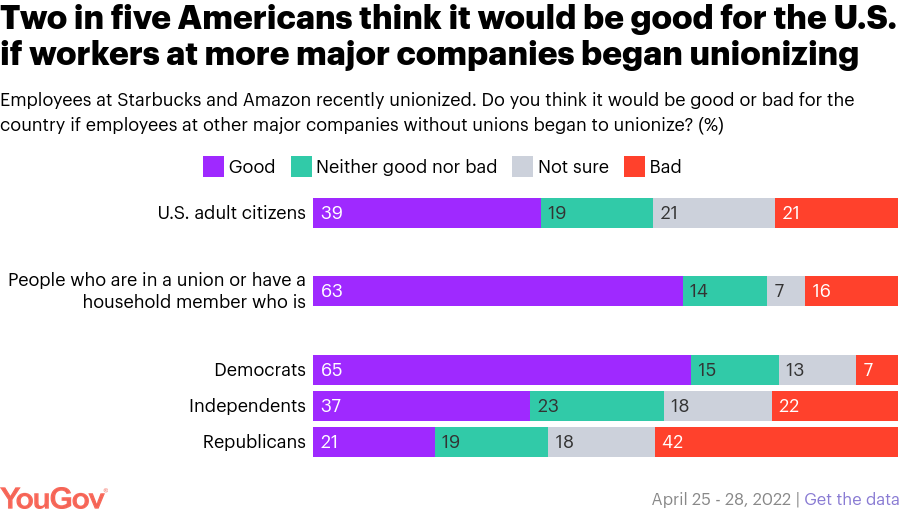
- More on how Americas see unions here.
We are not even close to hitting our climate clean energy targets in Ontario
